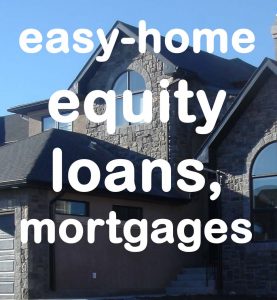Credit Score
No matter where you get a mortgage, you should aim for at least a 680 credit score for at least one borrower (or guarantor), especially if you put less than 20% down. A score of 680 is not necessary if you can make a 20% or larger down payment.
To improve your credit score and future financial success, you can do the following:
- Paying your bills on time and in full. Pay at least the minimum if you can’t afford the full amount.
- Your debt (loans, credit cards, lines of credit, etc.) should be paid off quickly.
- Maintain a low credit card balance and stay within the credit card limit.
- Apply for fewer credit cards or loans.
- If you are struggling with credit issues, consider an Alternative Lender (or B Lender) provide you with mortgage options based on your credit score.
Budgeting:
Both cash flow and sale price should be considered in a budget. You can’t have fun in a house with no money. You may have a different budget for your home than your cash flow budget. In addition to helping you determine your price range and finding an affordable home, a budget can also help you to see any savings gaps or opportunities. When it comes to managing your mortgage, this becomes very important.
Next, your down payment:
A 20% down payment is ideal for buying a home. This may not be possible in today’s market. If you are purchasing a home with a down payment less than 20%, you MUST have default insurance! (CMHC etc)
You can use your savings or RRSPs for your down payment on a home. Using the federal government’s Home Buyers’ Plan, first-time home buyers can leverage up to $35,000 of their RRSPs ($70,000 for a couple) for a down payment. Gifts from relatives are also acceptable. Your bank will want to see 90 days of TFSA and RRSP statements to ensure the funds are accounted for. Gifted funds need less proof.
How to Choose a Mortgage:
Choosing the right mortgage product for your financial goals is more than just the rate. We have access to hundreds of lending institutions, allowing us to find the best mortgage for you! Furthermore, mortgage agents are third-party services focused on YOUR needs. Get free unbiased advice and the best rates from someone whose only goal is to help you achieve your dream of home ownership.
The Paperwork:
- In order to apply for a mortgage, you will typically need to provide a standard package of documents, which usually includes:
- Identification issued by your government
- An applicant’s last month’s pay stubs
- Employer’s letter
- CRA tax and financial documents from the past two years (if incorporated)
- Bank statements for three months
- (Minimum 5% down payment)
- Any unusual (generally non-payroll) large deposits or withdrawals should be documented
Smart move; pre-approve:
You should get pre-approved for your mortgage for the best results! Your Mortgage Professional can help you find the best mortgage rate and term agreement for you. A pre-approval helps your real estate agent find the best home within your price range by verifying your budget.
- An approved rate is locked in for 120 days with a pre-approval. Your interest rates will not increase while you shop (phew!).
- In competitive markets, pre-approval lets the seller know that financing should not be an issue.
Remember the closing costs! These are usually between 1 and 4% of the purchase price.
You’re now ready to shop.
Congrats! After you have your down payment and a pre-approved loan (all documentation has been provided and your credit rating is in order), you should start looking for the perfect home. If you don’t already have a Realtor, I would be happy to recommend one.


